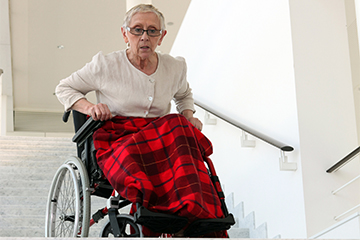More than 300,000 nursing home residents across the country are receiving antipsychotic medications, according to a federal study.
These drugs are typically used to treat schizophrenia and bipolar disorder. But a large number of nursing homes are prescribing them for residents with Alzheimer’s disease or dementia. These patients can experience anxiety and aggression, and nursing homes sometimes prescribe them in order to calm the patient down.
The problem is that when these drugs are prescribed inappropriately, they can increase the risk of heart failure, infections, and other serious health problems.
Antipsychotic drugs have not been approved by the Food and Drug Administration to treat dementia. In addition, federal law prohibits using drugs simply to restrain nursing home residents, and requires nursing homes to get the consent of the resident or his or her personal representative before prescribing antipsychotics.
Some nursing homes have been known to seek “consent” by casually mentioning to family members that they plan to give the resident “something to calm them down,” without fully explaining the seriousness of the drugs involved.
If you have a loved one in a nursing home, it’s a good idea to keep close tabs on the medications being prescribed, and if you have any questions, seek a second opinion from a doctor who’s not associated with the nursing home.
Call us for a free consultation if you believe a loved one may not be being treated well at a nursing home. 864.233.7200 or 1.800.903.8101






